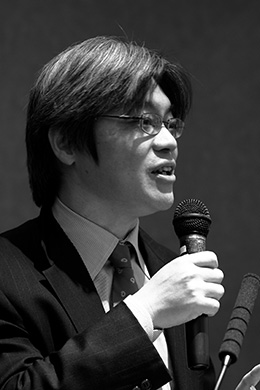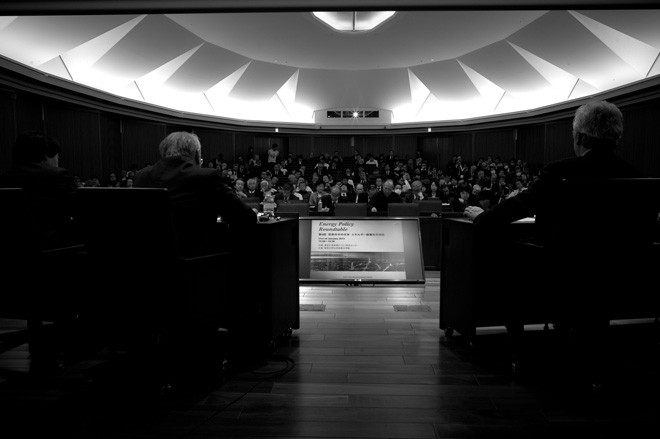
Q: Professor Sakata, tell us how you arrived at your current research style of using network analysis to examine innovation and advanced technology.
Sakata: The original intention of my research was to analyze social and economic phenomena as objectively as possible to provide effective support for the design of government policy and the decision-making process in corporate organizations. Based on my reflections on 20 years of experience as a government official, I felt that some information was not fully utilized in policy design and decision-making, even though abundant information is readily available. This has harmed the quality of the decision-making process and the development of more appropriate policies. Often, the fundamental direction of a policy is sound, but somehow its final design is flawed. I hope to contribute to rectifying this process by offering new techniques and methodologies of my own.
I have always maintained that passion for the subject is pivotal to research. You could also call it keen interest or concern. As my research mainly focuses on social or economic phenomena, knowledge of areas such as economics or business management is essential to deeper interest in and understanding of the research subject. On the other hand, information engineering and web engineering are the most effective tools for objective analysis of these phenomena. Consequently, without saying which is better or which should be prioritized, I think that the progress of my research is made more efficient by the mastering of both disciplines.
Q:What advice would you give to students considering entering GSDM?
Sakata: I have been involved with students from the University of Tokyo for almost seven years, and I have not seen another university anywhere else in the world with so many talented people gathered at its door. I would love to see these students becoming leaders of society one day.
One quality that I have always considered to be especially important in becoming a leader of society is versatility. If you are prone to weakness, it becomes apparent to other members of the team. In the real world, for example, you can say “I have learned information engineering,” but you may also be faced with legal or labor issues when engaged in larger projects. Marketing is also essential. A person who depends on others for everything outside his or her field of expertise is bound to fail as a leader.
In this sense, one of the tasks of GSDM is to cultivate leadership qualities in outstanding students with profound expertise. To this end, I would like to see students taking initiative when faced with different types of challenges without succumbing to their own weaknesses before the goal is reached.

Q:What message would you give to students currently enrolled in GSDM?
Sakata: First, one must consider that research, or graduate school learning as a prerequisite for research, does not provide you with all the solutions. There are no ready-made answers. Hence, you must be prepared to devise your own solutions. Something that does fit with your gut feeling may be wrong no matter what the professor says; even if something is right, in many cases it might not be the exact answer you are looking for. Thus my first suggestion would be, by all means adopt a critical and proactive approach to your research or learning.
Second, although this might sound commonplace, I would urge students to find joy in their research and exchanges with fellow researchers. My personal feeling is that research that one does not enjoy rarely produces positive outcomes. Furthermore, I hope that you may all one day taste the exultation and excitement that comes when something you have discovered or pioneered attracts widespread attention.
The obstacles that await in the working world will be much more challenging than the writing of a doctoral thesis. Hence, I believe that this experience at GSDM will give you the courage and strength to tackle challenges smoothly when you move beyond your studies.
